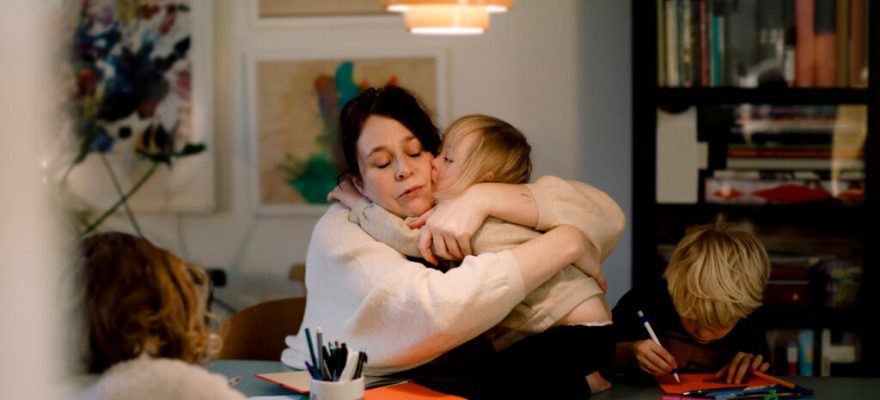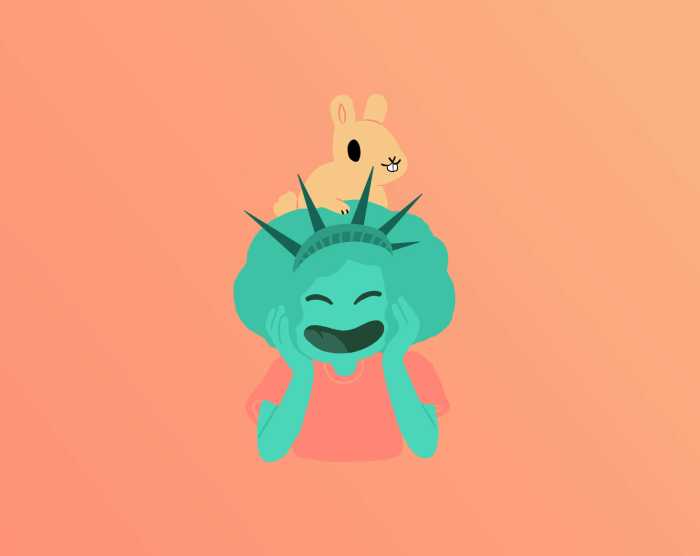
Mental Health Issues That Affect Young Children
Can pre-schoolers really be depressed? When a toddler seems anxious is it the same anxiety that adults experience? What should parents do when they notice recurring concerning behaviors?
These are just the first few questions we wanted to ask Dr. Rahil Briggs, National Director of ZERO TO THREE’s Healthy Steps Program, a non-profit that seeks to prevent potential pediatric mental health concerns before they happen.
The importance of infant and early childhood mental health
“Our brains grow faster between the ages of birth and three years than any later point in life, forming more than one million new neural connections every second,” says Dr. Briggs. “When babies have consistent nurturing relationships, positive early learning experiences, and good health and nutrition, those neural connections are stimulated and strengthened.”
“There are lifelong implications when things don’t go well,” says Dr. Briggs, “but as with physical health, positive input in these early years creates a strong foundation that can withstand storms.” Parents and caregivers should be reassured that there’s no such thing as too much love or attention and be educated on the value of early attachments, she says. “Mental health and physical health are intertwined, just as they are for adults.”
Why mental health in young children is often overlooked
Caregivers tend to receive much more information and advice on physical developmental expectations. “Everyone knows whose toddler is walking, whose baby is sitting, and so on,” says Dr. Briggs, “Whereas social-emotional milestones can be more challenging for parents to identify.” Knowing if your child’s reaction to being dropped off at a relative’s house is “normal” isn’t always easy, especially without the right information and support.
Dr. Briggs also acknowledges that as with mental health in general, “confusion or stigma about what that means for their child or for them might stop a parent or caregiver from bringing up their concerns to their provider.”
Go on, ask about your child’s mental health
You know your child best, so if you have questions or concerns you should talk to your child’s health care provider to get expert perspective and guidance informed by research, suggests Dr. Briggs. “It can be helpful to have a list ready before your visit so you can refer to it and make sure you get the most out of your visit and get the answers you need,” she says. “Remember, providers are there to help, not to judge. There are no bad or dumb questions—in fact, they’ve probably heard the same things from other parents or caregivers!”
Two common mental health issues in young children
- Anxiety
Young children with anxiety may show panic and shame and may show phobic behavior in response to certain stimuli. Dr. Briggs says, “Some behaviors that could signify anxiety tend to be present in many children, so look for these signs of potential anxiety in more of a collection than individually, with special attention to frequency, duration, and intensity.”
Signs & symptoms
- Has significant difficulty sleeping, frequent night waking, bad dreams, and/or night terrors
- Expresses frequent fears and worries around various activities (e.g., going outside, going to child care) or specific things (e.g., spiders, elevators, dogs).
- Displays a short fuse with strong emotions—doesn’t have space between an upset and a full-blown tantrum
- Is clingy and fussy beyond what seems typical for their age
- Has a need to use the bathroom excessively once toilet trained, and/or other toileting struggles
- Regresses or backslides in areas of previous skills
- Frequently complains of stomachaches and not feeling well
- Doesn’t meet developmental milestones as expected
How to help
“Parents and caregivers need to take care of themselves so they can be attuned to their child’s needs, adjust to meet those needs, and provide a buffer to their child’s stress,” says Dr. Briggs. Getting quality sleep, eating healthy, and exercising, as well as engaging in mindfulness practices can help you calmly engage with your child when they exhibit anxious behaviors.
Caregivers who are anxious themselves can unintentionally perpetuate a tendency toward anxiety, too. “They may respond to a child’s distress around separation or other typical fears with avoidance,” says Dr. Briggs. “This can potentially impede the growth of important coping skills and strategies that help to mitigate anxiety.”
- Depression
“As recently as 15 years ago, the concept of depression occurring in preschool-aged children was met with a lot of resistance,” says Dr. Briggs, “but now we have decades of documented evidence that children under three can experience actual depression and that results in changes in brain development.”
But toddlers are, by definition, full of big feelings and “labile emotions,” says Dr. Briggs. Here’s how to spot the difference:
Signs & symptoms
- Lack of enjoyment in common activities
- Sad and unresponsive facial expressions
- Listless body posture
- Slower physical mannerisms
- Irritable and fussy
- Trouble eating and sleeping
- Unexplained physical aches and pains
How to help
“You want to look for clustering of these behaviors, as well as prolonged changes in your child’s temperament or personality,” says Dr. Briggs. If you notice signs that your child might be experiencing depression, talk to a healthcare provider for advice and treatment options. And don’t be afraid to reach out to a mental health specialist with experience working with young children if you want additional input and/or support.
_____________________
About Dr. Rahil Briggs
Rahil D. Briggs, PsyD, is the National Director of HealthySteps, a program of ZERO TO THREE, the nation’s leading nonprofit working to ensure all babies and toddlers have a strong start in life. Since 2018, Dr. Briggs has overseen the dramatic growth of HealthySteps to over 230 sites across the country, reaching approximately 360,000 children and families in 2022. She is responsible for all aspects of the program’s operations, financial sustainability, evaluation and research, policy, model enhancements, and site professional development and training.
Additionally, Dr. Briggs is the founder and former director of Pediatric Behavioral Health Services at Montefiore, one of the largest integrated pediatric behavioral health services in the nation. The Academic Pediatric Association awarded her for this work with the 2018 Health Care Delivery Award.








